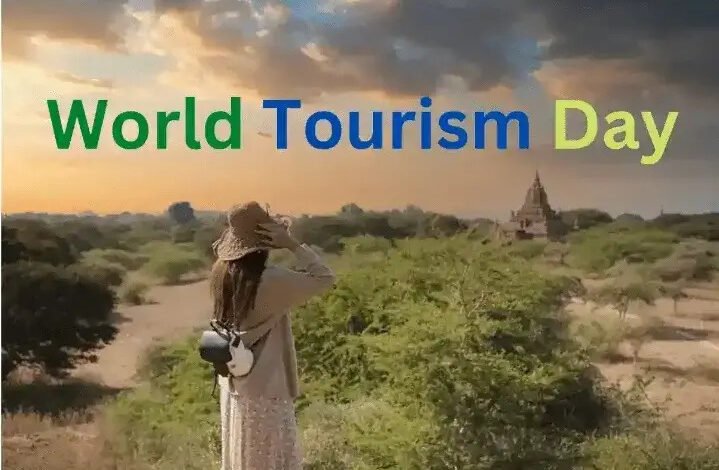World Tourism Day 2025: Empowering Communities Through Sustainable Tourism

Tourism is more than leisure; it is a powerful force that shapes economies, cultures, and communities globally.
To highlight its role in global development, the United Nations World Tourism Organization (UNWTO) established World Tourism Day in 1980, celebrated each year on September 27, a date chosen to mark the 1970 adoption of the UNWTO Statutes.
What began as an annual observance has grown into a platform for nations and organizations to showcase innovations, confront challenges, and explore the future of travel.
In 2025, under the theme “Tourism and Sustainable Transformation,” the world is called to rethink how travel can inspire and connect while also preserving the environment, strengthening communities, and celebrating cultural diversity.
History of World Tourism Day
The origins of World Tourism Day are rooted in the recognition of tourism as a driver of global unity and progress.
When the UNWTO Statutes were adopted on September 27, 1970, it signaled the beginning of a coordinated international effort to promote responsible and inclusive travel.
A decade later, in 1980, World Tourism Day was officially established to raise awareness of tourism’s contribution to development, cultural exchange, and peace.
Since then, the celebration has evolved into a truly global event. In 1997, the UNWTO introduced the practice of selecting a host country each year to spotlight tourism’s impact on different regions of the world.
Over the decades, the day has become a reminder that tourism is not only about destinations but also about shared experiences, respect for cultures, and building bridges between people.
Importance of World Tourism Day
Tourism contributes about 10% of global jobs, but its impact goes far beyond economics. It connects people and cultures, fosters mutual understanding, and creates opportunities that transform both urban and rural communities.
When managed responsibly, it revives heritage, protects traditions, and sustains local livelihoods. Tourism also nurtures environmental awareness. Encounters with nature and cultural sites can inspire respect for ecosystems and action on climate challenges.
Yet the same industry can overwhelm communities and damage the environment if poorly managed. That is why the 2025 theme, “Tourism and Sustainable Transformation,” calls for a shift toward models that empower people while protecting the destinations they call home.
Tourism is not just for adults; it is also a powerful learning journey for children. When children are allowed to travel and experience the world, they gain broader perspectives, develop respect for cultural diversity, and build a sense of environmental responsibility from a young age.
Parents are therefore encouraged to allow their children to explore tourism in safe and meaningful ways, whether through school trips, cultural festivals, or family vacations.
Such experiences nurture curiosity, tolerance, and creativity, while also inspiring interest in future careers within tourism. By guiding children to see tourism as more than leisure, families help shape a new generation of travelers who value sustainability.
World Tourism Day Impacts & Challenges
Tourism brings undeniable benefits when managed responsibly, yet it also faces urgent challenges. Below are some of the positive impacts of sustainable transformation and the obstacles that must be addressed:
Positive Impacts of Sustainable Transformation
- Economic Resilience – Supporting MSMEs and local businesses ensures fairer distribution of benefits and reduces reliance on mass tourism.
- Preservation of Culture and Nature – Protecting heritage sites and ecosystems strengthens both authenticity and destination appeal.
- Social Inclusion – With supportive policies, tourism can provide employment, empower women and marginalized groups, and encourage cross-cultural respect.
- Environmental Gains – Waste reduction, renewable energy adoption, biodiversity protection, and lower carbon emissions contribute to sustainability.
Challenges of Tourism
- Degradation & Overtourism – Overcrowding strains the environment, infrastructure, and local traditions.
- Lack of Inclusivity – Without targeted measures, marginalized communities may not benefit from tourism.
- Greenwashing & Weak Governance – Claims of sustainability require real standards, oversight, and accountability.
- Climate Vulnerabilities – Rising sea levels, storms, and droughts threaten tourism infrastructure and livelihoods.
- Balancing Growth & Conservation – Expansion often conflicts with conservation goals unless carefully managed.
Recommendations
Role of Governments & Policymakers
i. Develop and enforce sustainability measures such as eco-friendly infrastructure, heritage preservation, and environmental protection laws.
ii. Ensure inclusive planning by involving local communities in decision-making.
iii. Invest in training and capacity-building programs for tourism professionals.
Role of Businesses & the Private Sector
a. Adopt green practices: low-carbon transport, waste reduction, energy efficiency, and ethical sourcing.
b. Innovate with eco-tourism, community-based tourism, and digital solutions to reduce environmental impact.
c. Partner with governments, NGOs, and local communities to create shared benefits.
Role of Civil Society & Communities
- Actively participate in planning, raise concerns about impacts, and safeguard culture and heritage.
- Offer authentic cultural experiences such as guided tours, handicrafts, and homestays.
- Promote conservation and biodiversity protection.
Role of Travelers in World Tourism Day
- Choose sustainable accommodations and transport.
- Minimize waste and respect local customs.
- Support local economies by eating local food and buying local crafts.
- Learn about the cultural and environmental sensitivities of destinations.
Conclusion
World Tourism Day 2025 should serve as a platform for action, not just celebration. The theme “Tourism and Sustainable Transformation” calls on governments, businesses, communities, and travelers to rethink tourism and maximize its positive impact on people and the planet.
If embraced sincerely, the policies adopted and the habits cultivated today can lead to lasting change. Tourism has the power to bridge divides, generate income, and foster global understanding, but only if pursued in a model that is sustainable, inclusive, and respectful.
As the world reimagines tourism in 2025, the true measure of progress will not be in numbers, but in the lasting balance we create between people, planet, and prosperity.





